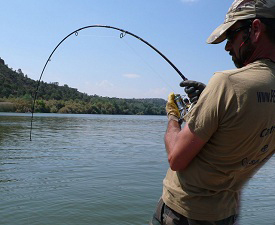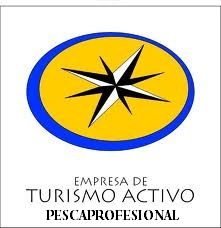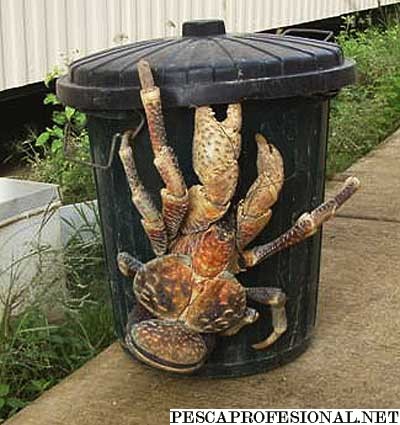CANGREJO COCO
Feb 12, 2010 Lorenzo Martinez Bernal ESPECIES DE CANGREJOS 5
CANGREJO COCO
El cangrejo de los cocoteros (Birgus latro) es un crustáceo decápodo de la familia Coenobitidae; es el artrópodo terrestre conocido más pesado que existe (el cangrejo más grande por longitud es el cangrejo gigante japonés). El cangrejo de los cocoteros es una especie de cangrejo ermitaño cuya habilidad característica es abrir cocos con sus fuertes pinzas para alimentarse con el contenido.

En inglés recibe el nombre alternativo de robber crab o palm thief («cangrejo ladrón» o «ladrón de palmeras», respectivamente), mientras que en alemán se le designa como Palmendieb. Estas denominaciones son debidas a su afición a robar objetos brillantes, como cubertería y envases metálicos de casas y tiendas de campaña. De hecho, el nombre binominal refleja esta conducta (del latín latro, «ladrón»).
Se lo denomina además «Cangrejo ermitaño terrestre» por su costumbre, en épocas de muda, de usar el caparazón de pequeños animales. Esto puede resultar confuso, ya que se aplica también a otras especies, como Coenobita variabilis.
En distintas regiones recibe nombres locales como «Ayuyu» en Guam, «Unga» o «Kaveu».
Birgus latro habita en áreas a lo largo del océano Índico y el Pacífico occidental. La mayor población y mejor conservada se encuentra en la Isla de Navidad en el océano Índico, y existen poblaciones importantes en las islas Cook del océano Pacífico, especialmente en Pukapuka, Suwarrow, Mangaia, Takutea, Mauke, Atiu, e isla Palmerston.
También se lo encuentra en las Seychelles, especialmente en Aldabra, islas Gloriosas, isla de Astove, Asunción, y Cosmoledo, aunque se ha extinguido en las islas centrales. Se conoce que también habita en las islas Andamán, en la bahía de Bengala, y ocasionalmente en las Islas de la Sociedad donde la más notable es Tahití.
Entre los ejemplares de las distintas islas hay diferencias de color que varían entre violeta, púrpura y marrón. Teniendo en cuenta que no pueden nadar de adultos, los cangejos deben haber colonizado las islas como larvas. Sin embargo, algunos investigadores consideran que los 28 días del estadio larval no son suficientes para algunas de estas migraciones colonizadoras, y suponen que el cangrejo puede haber alcanzado islas distantes sobre maderos flotantes o pecios.
La distribución geográfica muestra algunas zonas vacías, como por ejemplo alrededor de Borneo, Indonesia o Nueva Guinea. Estas islas, fácilmente accesibles para el cangrejo y con un hábitat sustentable, no poseen sin embargo población de la especie. Esto se debe a que han sido llevados a la extinción por el consumo humano. Como excepción, existen cangrejos en las islas del Parque nacional marino Wakatobi en Sulawesi, Indonesia.
El cangrejo de los cocoteros habita en madrigueras o en grietas en las rocas, dependiendo del tipo de suelo. Cava sus propias madrigueras en la arena o suelo blando. Durante el día el animal permanece oculto para protegerse de los predadores y reducir la pérdida de humedad por el calor. Mientras descansa en su madriguera el animal clausura la entrada con una de sus pinzas para lograr el microclima húmedo que necesitan sus órganos respiratorios.
En áreas con mucha población de cangrejos se puede ver a algunos durante el día, quizá para tomar ventaja en la búsqueda de alimento. Suelen salir de sus madrigueras si el día es húmedo o lluvioso, ya que estas condiciones climáticas le permiten respirar con más facilidad. Habita exclusivamente en tierra firme, y se han avistado ejemplares a más de 6 km tierra adentro.
Los informes sobre el tamaño de la especie difieren, aunque la mayoría de las referencias estiman un peso de más de 4 kg, longitud corporal de 40 cm y envergadura de patas de aproximadamente 1 m[2] siendo los machos generalmente de mayor tamaño que las hembras. Se estima que es el límite teórico de tamaño para un artrópodo terrestre; en el caso de ejemplares marinos, donde el agua ayuda a soportar el peso, se alcanzan tamaños mayores, siendo ejemplo Macrocheira kaempferi.
Presentan una longevidad entre 30 y 60 años, teniendo en cuenta que las referencias al respecto son muy variadas. El cuerpo del Bigus latro, como el de todos los decápodos, se divide en una sección central (cefalotórax) con 10 patas, y el abdomen.
El primer par de patas está armado con grandes pinzas, que utiliza para romper los cocos con los que se alimenta, y para transportar además objetos de hasta 29 kg de peso. El siguiente par de patas, como en todos los cangrejos ermitaños, son poderosas patas utilizadas para caminar, que le permiten también trepar por los troncos de los cocoteros, hasta alcanzar 6 m de altura. El cuarto par es más pequeño, con pinzas en los extremos usadas por las crías para asegurarse el caparazón o una cáscara de coco como protección; los adultos las usan para caminar y saltar. El último par de extremidades es muy pequeño y sirve solamente para limpiar los órganos de respiración. Estas patas se llevan usualmente dentro del caparazón, en la cavidad que contiene tales órganos.
Aunque la especie es un tipo derivado de los cangrejos ermitaños, solo los ejemplares juveniles utilizan conchas de caracol o caparazones para proteger su blando abdomen, y a veces utilizan cáscaras de coco con el mismo objetivo. A diferencia de otros ermitaños, los cangrejos adultos no utilizan caparazones ajenos, sino que endurecen su armadura abdominal con depósitos de calcio y queratina.
Otra estrategia de protección consiste en doblar su cola por debajo del abdomen, como hacen la mayoría de las especies de cangrejos. El abdomen endurecido protege al animal, y reduce la pérdida de humedad, pero debe ser mudado a intervalos periódicos. La muda lleva aproximadamente 30 días, durante los cuales el cuerpo del cangrejo es blando y vulnerable, por lo que permanece escondido para protegerse.
En su estado adulto, Birgus latro no puede nadar, y se ahoga en el agua. Para respirar utiliza un órgano especial llamado pulmón braquial, que puede definirse como un estadio evolutivo intermedio entre branquias y pulmones, y es una de las adaptaciones más características de la especie a su ecosistema.
Otro órgano distintivo del cangrejo es su nariz. El proceso del olfato opera en forma distinta si se trata de moléculas hidrófilas en el agua o hidrófobas en la atmósfera. Como la mayoría de los cangrejos viven en el agua, poseen órganos especializados llamados aestetas en sus antenas para determinar al mismo tiempo la concentración y dirección de un olor.
Sin embargo, como Birgus latro vive en tierra, las aestetas de sus antenas difieren significativamente de las de otros cangrejos, y se asemejan más a los órganos olfativos de los insectos, llamados sensilia. A pesar de que los insectos y el cangrejo provienen de diferentes patrones evolutivos, la misma necesidad de detectar olores en el aire han llevado al desarrollo de órganos de notable similitud, en lo que constituye un claro ejemplo de convergencia evolutiva. Al igual que los insectos, Birgus latro mueve rápidamente sus antenas para mejorar su olfato. Tiene un sentido excelente y pueden detectar olores interesantes a través de grandes distancias; por ejemplo, el olor de carne asada, bananas y cocos llaman especialmente su atención, como fuentes potenciales de alimento.

El cangrejo de los cocoteros se aparea en forma rápida y frecuente sobre tierra seca desde mayo a septiembre, especialmente en julio y agosto. Macho y hembra luchan hasta que el macho logra volcar a la hembra sobre su dorso para aparearse; todo el proceso lleva alrededor de 15 minutos. Poco después, la hembra pone sus huevos y los adhiere bajo su abdomen, acarreando los huevos fertilizados durante unos pocos meses. Al momento de la eclosión, usualmente de octubre a noviembre, la hembra deja las larvas (zoeas) en el mar durante la marea alta. Se ha documentado que todas las hembras hacen esto en la misma noche, saturando la playa de animales.
Las larvas flotan en el océano durante 28 días, durante los cuales un gran número son devoradas por los predadores. Luego permanecen otros 28 días en el fondo del mar y en la playa como cangrejos ermitaños, utilizando como protección caparazones descartados por otros animales. En este estadio, se aventuran a veces hasta tierra firme, y -al igual que los cangrejos ermitaños- van cambiando de protección a medida que crecen. Los cangreos jóvenes que no logran encontrar un caparazón en desuso usan trozos de cáscara de coco.
Luego de estos 28 días dejan definitivamente el mar y pierden su habilidad de respirar en el agua. Los cangrejos alcanzan la madurez reproductiva entre los 4 y 8 años de edad, uno de los períodos más largos entre los crustáceos.
VIDEO
UN SALUDO A LOS AMIGOS DE PESCAPROFESIONAL
happy wheelsLorenzo Martinez Bernal
Pescador y guia profesional especializado en la pesca del siluro al lanzado desde embarcacion y a pellets.Si quieres pasar un dia inolvidable de pesca de este gigante de rio contacta con nosotros a traves del formulario de contacto de Guia De Pesca.
Articulos relacionados
Más en esta categoría
-
 SUSCRIBETE A NUESTRO CANAL DE YOUTUBE
SUSCRIBETE A NUESTRO CANAL DE YOUTUBEFeb 21, 2011 3
-
 CANGREJO COMUN DE RIO
CANGREJO COMUN DE RIONov 19, 2010 1
-
 CANGREJO SEÑAL – SIGNAL CRAYFISH
CANGREJO SEÑAL – SIGNAL CRAYFISHEne 14, 2010 3
-
 CANGREJO AMERICANO – AMERICAN
CANGREJO AMERICANO – AMERICANEne 09, 2010 1
5 thoughts on “CANGREJO COCO”
Leave a Reply Cancelar la respuesta
Lo siento, debes estar conectado para publicar un comentario.
HAZ YA TU RESERVA VIVE LA AVENTURA
CORREO: LORENZOMARTINEZ@LIVE.COM
GUIA DE PESCA DEL SILURO – +34 693464214
LORENZO MARTINEZ – GUIA DE PESCA
EN EL RIO EBRO, EMBALSE DE MEQUINENZA />
/>
PESCADOR Y GUIA PROFESIONAL, EXPECIALIZADO CON MAS DE 25 AÑOS DE EXPERIENCIA EN LA PESCA EXCLUSIVA DEL SILURO AL LANZADO DESDE EMBARCACION Y EN LA PESCA FIJA CON PELLETS DESDE ORILLA, CLONK Y BREAK LINE. TAMBIEN GUIAMOS LA PESCA DE GRANDES CARPAS,LUCIOPERCAS Y PERCAS FLUVIATILIS. SI QUIERES PASAR UN DIA INOLVIDABLE DE PESCA, CONTACTA CONMIGO A TRAVES DE NUESTRO NUMERO DE TELEFONO: 693-464214. DISPONEMOS DE VARIOS TIPOS DE ALOJAMIENTOS EN LA ZONA DE PESCA, EN CONSONANCIA CON VUESTRO PRESUPUESTO. OS INFORMAREMOS DE NUESTROS SERVICIOS SIN NINGUN COMPROMISO.

TURISMO ACTIVO DE ARAGON
EN NUESTRA EMPRESA, CUMPLIMOS CON TODOS LOS REQUISITOS QUE EXIGE EL GOBIERNO DE ARAGON PARA EL SERVICIO DE GUIA DE PESCA, CONTAMOS CON LOS SEGUROS DE RESPONSABILIDAD CIVIL Y SEGURO DE ACCIDENTES, PARA MAYOR COBERTURA A NUESTROS CLIENTES.-


CAMPEONATO DEL MUNDO DE PESCA DEL SILURO CON PELLETS EN CHIPRANA
GUIA DE PESCA DEL SILURO
-
 PESCA CON GUIA DEL SILURO EN MEQUINENZA
PESCA CON GUIA DEL SILURO EN MEQUINENZAJul 12, 2021 0
En pescaprofesional,somos guias de pesca del siluro, en... -
 PESCA DEL SILURO CON GUIA EN EL RIO EBRO
PESCA DEL SILURO CON GUIA EN EL RIO EBROMay 20, 2019 0
PESCA DEL SILURO CON GUIA EN EL RIO EBRO Pesca del siluro... -
 GUIAS DE PESCA DEL SILURO PARA NIÑOS
GUIAS DE PESCA DEL SILURO PARA NIÑOSFeb 18, 2019 0
GUIAS DE PESCA DEL SILURO PARA NIÑOS En pescaprofesional,... -
 GUIA DE PESCA DE SILUROS Y GRANDES CARPAS EN MEQUINENZA RIO...
GUIA DE PESCA DE SILUROS Y GRANDES CARPAS EN MEQUINENZA RIO...Feb 05, 2019 0
GUIA DE PESCA DE SILUROS Y GRANDES CARPAS EN MEQUINENZA RIO... -
 PESCA DEL SILURO Y CARPAS EN OTOÑO
PESCA DEL SILURO Y CARPAS EN OTOÑOOct 01, 2018 0
PESCA DEL SILURO Y CARPAS EN OTOÑO LA MEJOR ESTACION PARA... -
 GUIA DE PESCA DE SILUROS XXX
GUIA DE PESCA DE SILUROS XXXSep 18, 2018 0
GUIA DE PESCA DE SILUROS XXX, PESCA EXTREMA DE LOS GRANDES... -
 GUIA DE PESCA DEL SILURO CON PELLETS EN MEQUINENZA
GUIA DE PESCA DEL SILURO CON PELLETS EN MEQUINENZAJul 16, 2018 0
GUIA DE PESCA DEL SILURO CON PELLETS EN MEQUINENZA En... -
 GUIA DE PESCA DEL SILURO EN MEQUINENZA
GUIA DE PESCA DEL SILURO EN MEQUINENZAJun 04, 2018 0
GUIA DE PESCA DEL SILURO EN MEQUINENZA GUIA DE PESCA DEL...
GUIA DE PESCA DE LA CARPA
-
 PESCA GUIADA DEL SILURO Y GRANDES CARPAS EN SEPTIEMBRE
PESCA GUIADA DEL SILURO Y GRANDES CARPAS EN SEPTIEMBRESep 19, 2016 2
PESCA GUIADA DEL SILURO Y GRANDES CARPAS EN SEPTIEMBRE En... -
 VIAJES DE PESCA DE LA CARPA
VIAJES DE PESCA DE LA CARPAEne 19, 2014 0
VEN A PESCAR CON NOSOTROS LAS GRANDES CARPAS DEL... -
 SILUROS Y CARPAS AL PELLETS
SILUROS Y CARPAS AL PELLETSAgo 04, 2012 1
SILUROS Y CARPAS AL PELLETS EN LAS AGUAS DEL RIO EBRO... -
 VACACIONES DE PESCA DE SILUROS
VACACIONES DE PESCA DE SILUROSAgo 01, 2012 0
VACACIONES DE PESCA DE SILUROS VEN CON NOSOTROS DE... -
 CARPFISHING EN EMBALSE DE MEQUINENZA
CARPFISHING EN EMBALSE DE MEQUINENZAMar 20, 2012 0
CARPFISHING EN EMBALSE DE MEQUINENZA ESTAMOS EN BUENAS...
GUIA DE PESCA DE LA LUCIOPERCA Y PERCA
-
 GUIA DE PESCA DEL SILURO Y LUCIOPERCA AL LANCE EN...
GUIA DE PESCA DEL SILURO Y LUCIOPERCA AL LANCE EN...Feb 20, 2018 0
GUIA DE PESCA DEL SILURO Y LUCIOPERCA AL LANCE EN... -
 GUIA DE PESCA DE LA LUCIOPERCA EN MEQUINENZA
GUIA DE PESCA DE LA LUCIOPERCA EN MEQUINENZAMar 13, 2017 0
GUIA DE PESCA DE LA LUCIOPERCA EN MEQUINENZA En... -
 PESCA DE LA PERCA
PESCA DE LA PERCAFeb 10, 2016 0
PESCA DE LA PERCA En aguas del embalse de Mequinenza, soy... -
 GUIA PESCA LUCIOPERCA PERCA
GUIA PESCA LUCIOPERCA PERCAEne 20, 2016 0
GUIA PESCA LUCIOPERCA PERCA Guia pesca lucioperca ... -
 PESCA DE LA LUCIOPERCA Y PERCA
PESCA DE LA LUCIOPERCA Y PERCANov 10, 2015 0
PESCA DE LA LUCIOPERCA Y PERCA Guía de pesca de la...
VEN Y VIVE TU GRAN AVENTURA
PESCA DEL SILURO
Categorías
- BASS-PERCA AMERICANA
- CARPAS-CIPRINIDOS
- CRONICAS DE PESCA
- CURIOSIDADES
- DESPEDIDAS DE SOLTERO
- ESPECIES DE CANGREJOS
- GRANDES PECES
- GUIA DE PESCA DE LA CARPA
- GUIA DE PESCA DEL SILURO AL LANCE
- GUIAS DE PESCA DE LA LUCIOPERCA Y PERCA AL LANZADO
- GUIAS DE PESCA DEL SILURO
- GUIAS DE PESCA DEL SILURO AL LANZADO
- GUIDED FISHING TRIPS CATFISH EBRO MEQUINENZA SPAIN
- INFORMACION
- LUCIO
- LUCIOPERCA-PERCA
- NOTICIAS DE PESCA
- PECES DE MAR
- PESCA DE….
- PESCA GUIADA DEL SILURO AL LANCE EN KAYAK Y EMBARCACION
- RIOS – EMBALSES – LAGOS
- SILURO
- TECNICAS DE PESCA
- TRUCHA-SALMONIDOS
- VIAJES DE PESCA DEL SILURO
- VIDEOS DE PESCA








esos cangrejos son increibles!!!! como puedo hacer para adquirir uno!!!!!!!!!!!!
soy de ecuador!!!!!!!!!!!!1
puedo tener uno de mascota? quiero verlos y conoserlos por que son fantasticos y asombrosos y soy de mexico en morelos
holaaa solo quero desir que me encantan los cangrejos y este video esta super
ES UNA EXCELENTE INFORMACION Y SOBRE TODO CON LAS FOTOGRAFIAS, PORQUE ASI PODEMOS RECONOCER ALGUNAS VARIEDADES EN NUESTRO PAIS